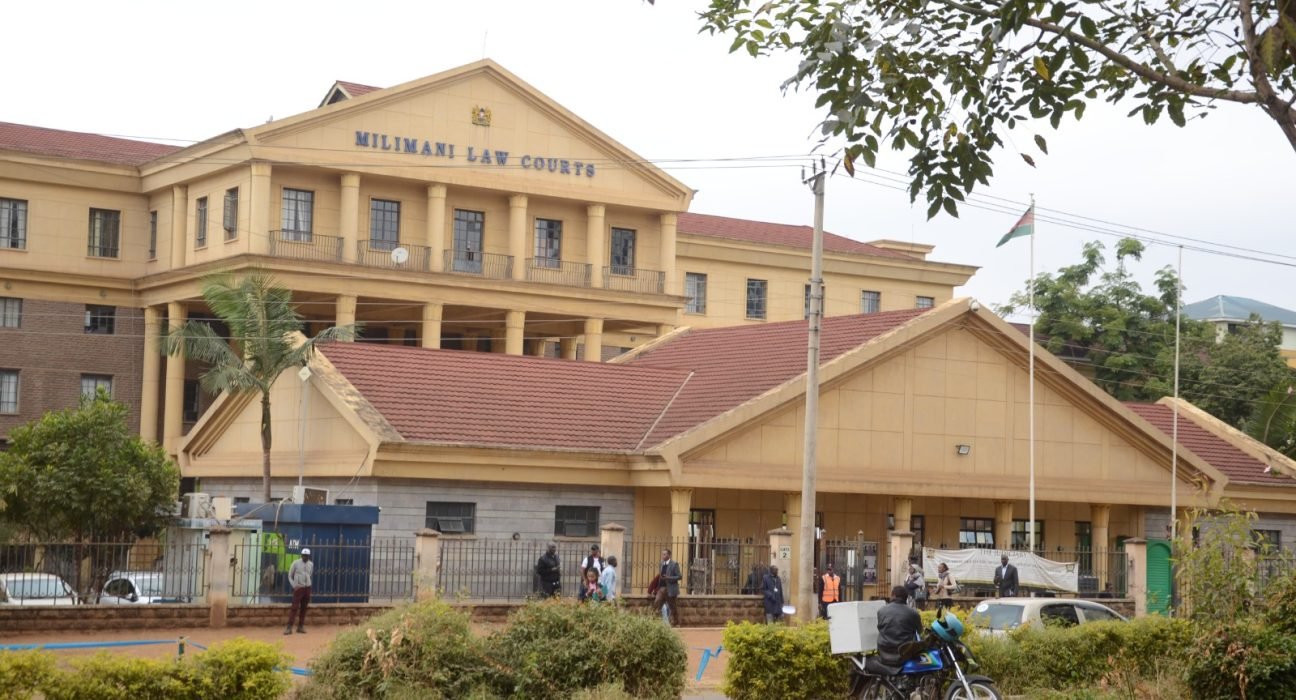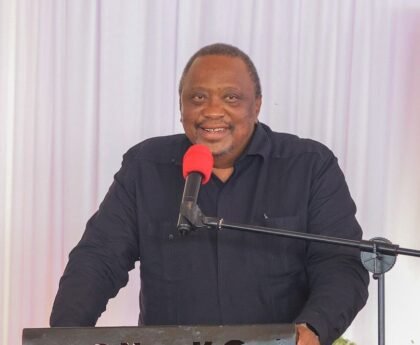By Carmel Rickard
A prominent Kenyan lawyer has been ordered personally to pay Kshs10 million to the country’s Ethics and Anti-Corruption Commission (EACC). In a decision handed down in November, High Court Judge Esther Maina said Joseph Owino Kojwando had acted to conceal the source of funds and that he was not entitled to keep any part of the money as ‘instruction fees’, since this would unjustly benefit him.
The case dealt with land acquired by the then city council of Nairobi to use as a cemetery, in a deal that has since been held by several high court judges to have been fraudulent. According to the EACC, Kojwando was paid Kshs10 million as part of the cemetery deal. The judge also ordered that Kojwando pay the legal costs of the case plus interest at 12% from the date he received the money until it’s paid, in full, to the EACC.
The extraordinary situation in which Kenyan lawyer, Joseph Kojwando, finds himself, dates back to a transaction in 2008 when the then city council of Nairobi bought land for a cemetery.
On 19 December 2008, Henry Kilonzi agreed to buy a property from Naen Rech Ltd for Kshs 110 million. Yet on the very same day, the council bought the very same land from Kilonzi for just over Kshs 283 million.
The deal had been set up in advance: Another firm of advocates, Alphonce Mutinda, had written to the council, falsely informing it that Kilonzi was the owner of the land and that Naen Rech was its agent, appointed to participate in the tender to supply land for a cemetery.
Forged valuation report
A valuation report showed that the land was valued at Kshs 325 150 000 and this formed part of the basis on which the tender to supply the land was awarded to Naen Rech. But it turned out that the report was a forgery, and its purported author, the deputy commissioner of lands, said he had nothing to do with it.
Some months later another valuation report, by the EACC’s own valuer, showed that the land was actually worth just Kshs 30 million, despite the council having paid Kshs 283,200,000 for it.
Kenya’s Ethics and Anti-Corruption Commission (EACC) has been pursuing the matter, and several cases arising from the fraud have already come to court. Now, in this case, the EACC had their sights set on Kojwando.
Confidentiality violated
The judge said she found it ‘instructive’ that Kojwando didn’t dispute receiving Kshs 10 million from the legal firm Odero, Osiemo & Co, while he denied knowing anything about the cemetery contract. He said the money was not received fraudulently and that it was funds for a joint venture between two of his clients. He had only acted on their instructions, and he ‘personally’ didn’t receive any money from the council. Moreover, he claimed, the legal action against him violated client/advocate confidentiality and should be dismissed with costs.
But the judge wasn’t persuaded.
She said that the EACC’s evidence had proved ‘on a balancing of probabilities’ that the Kshs 10 million paid into Kojwando’s account by Odero, Osiemo was part of the proceeds from the council’s purchase of land. This, she said, was ‘neither controverted nor rebutted.’
The purchase of the cemetery land was ‘not only irregular but also unlawful and illegal’. Aspects of the tender and award had been the subject of a number of court cases already, and each time the presiding judge had held that the transaction was fraudulent.
Foul play
Her own finding, she said, was in full agreement that the payment was part of a ‘fraudulent transaction’.
Kojwando was not a party to the fraudulent procurement, and he didn’t act for any of the parties involved in the deal. But the money that was sent to his account by the other firm of advocates ‘raises more questions than answers’. It was clear that Kojwando had ‘reasons to suspect foul play’ and, the judge added, ‘it is my finding that he had reason to believe that his firm was being used as a conduit for proceeds of crime and to conceal with real source of the money.’
‘The purported agreement which he produced was but a means … to launder proceeds of crime (money stolen from public coffers).’
He hadn’t paid the Kshs 10 million over to the two clients on whose behalf he claimed to have received the money. And there was ‘no evidence at all’ that he had acted on behalf of these two ‘so-called clients’. If he had paid the funds to them, he would have been free to call them as witnesses, and the fact that he didn’t do so ‘only goes to confirm that the money may not have been for the benefit of these two persons.’
Tainted money
She thus found that he had been used to launder some of the ‘tainted money’.
Money laundering and disguising the real source of funds were both offences. In this case the funds were public funds, unlawfully acquired from the council ‘and this court would fail in its duty if it allowed (Kojwando) who was unjustly paid the funds to be enriched by retaining it.’
For all these reasons, she found him personally liable to repay the Kshs 10 million to the EACC ‘on behalf of the public’. The funds should then be paid on to the consolidated fund as provided in the Anti-corruption and Economic Crimes Act.
As to costs, there had been nothing to persuade her that they shouldn’t follow the event, and so she also ordered that Kojwando should pay the legal costs of the case. In addition, he would be liable for interest on the Kshs 10 million at 12 % from the date the money was first paid over to him until payment to the EACC had been made in full.
Professional ‘facilitating’
The case is a reminder of comments by the then-EACC’s chief executive, Halakhe Waqo, on the role of professionals in corruption. He told a gathering of professionals that Kenyan lawyers, engineers and accountant had been involved in ‘facilitating’ cases of corruption.
Reuters quoted him in a 2019 address as saying ‘In every white-collar corruption or deal, there’s a professional facilitating.’
‘If we investigate a road project problem, there is an engineer there, a civil engineer. There is a lawyer who will handle the money from the transactions …. There is an accountant in the office where these issues are processed.’
Waqo challenged professional association to create self-regulation organs that would ensure their members didn’t enable corrupt deals.
Kenya Insights allows guest blogging, if you want to be published on Kenya’s most authoritative and accurate blog, have an expose, news TIPS, story angles, human interest stories, drop us an email on [email protected] or via Telegram
Share via:




